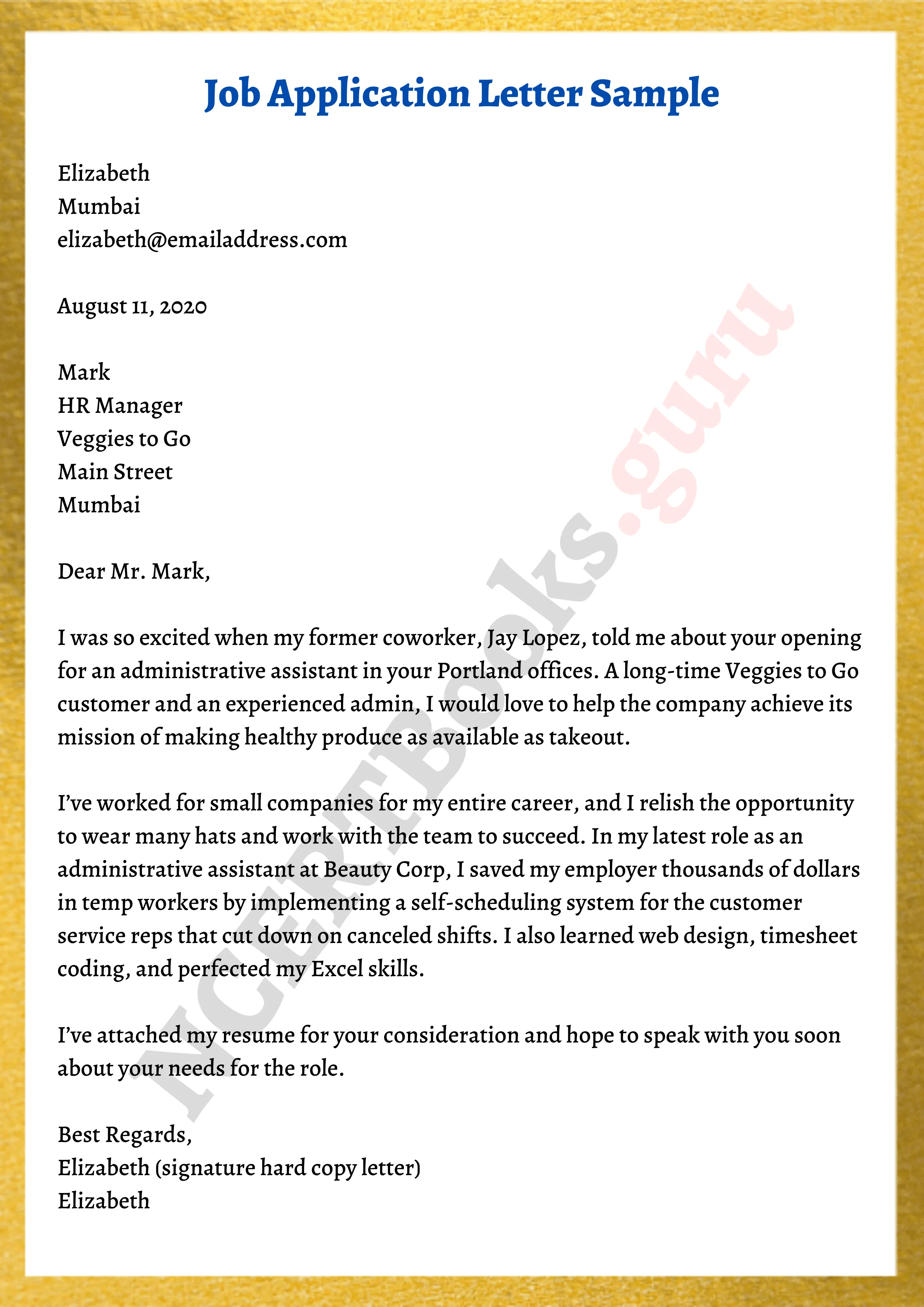Why a Cover Letter Matters for Your Job Application
In the competitive world of job applications, a well-crafted cover letter can be your golden ticket to an interview. Often overlooked, the cover letter is your first chance to make a lasting impression on a potential employer. It’s more than just a formality; it’s a powerful tool that allows you to highlight your personality, passion, and the specific ways you can contribute to the company. Without a cover letter, you might miss the opportunity to connect with the hiring manager on a personal level and differentiate yourself from other applicants. A cover letter allows you to make a great first impression and convey the value you bring to the table. It also allows you to demonstrate your understanding of the role and the company, showcasing your genuine interest and enthusiasm. Failing to submit a cover letter could lead to your application being overlooked, as many employers consider it a crucial component of the hiring process. Using a compelling cover letter can be the difference between getting an interview and never hearing back.
Highlight Your Skills and Experience
Your cover letter provides an opportunity to showcase your most relevant skills and experiences in a way that complements your resume. Don’t simply repeat what’s on your resume; instead, elaborate on your accomplishments and explain how your skills align with the job requirements. Provide specific examples of how you’ve used your skills to achieve positive results in the past. Quantify your achievements whenever possible to demonstrate the impact you’ve made. For example, instead of saying ‘Managed social media,’ state ‘Increased social media engagement by 40% in six months.’ Showcasing these achievements not only highlights your capabilities but also demonstrates your potential to make a similar impact in the new role. Remember to always tailor your skills and experiences to match the specific needs of the job description. Take a close look at the job description and focus on the skills and experiences that are most relevant to the position. By doing so, you’ll increase your chances of capturing the hiring manager’s attention and showing that you are a perfect fit for the role.
Tailor Your Letter to Each Job
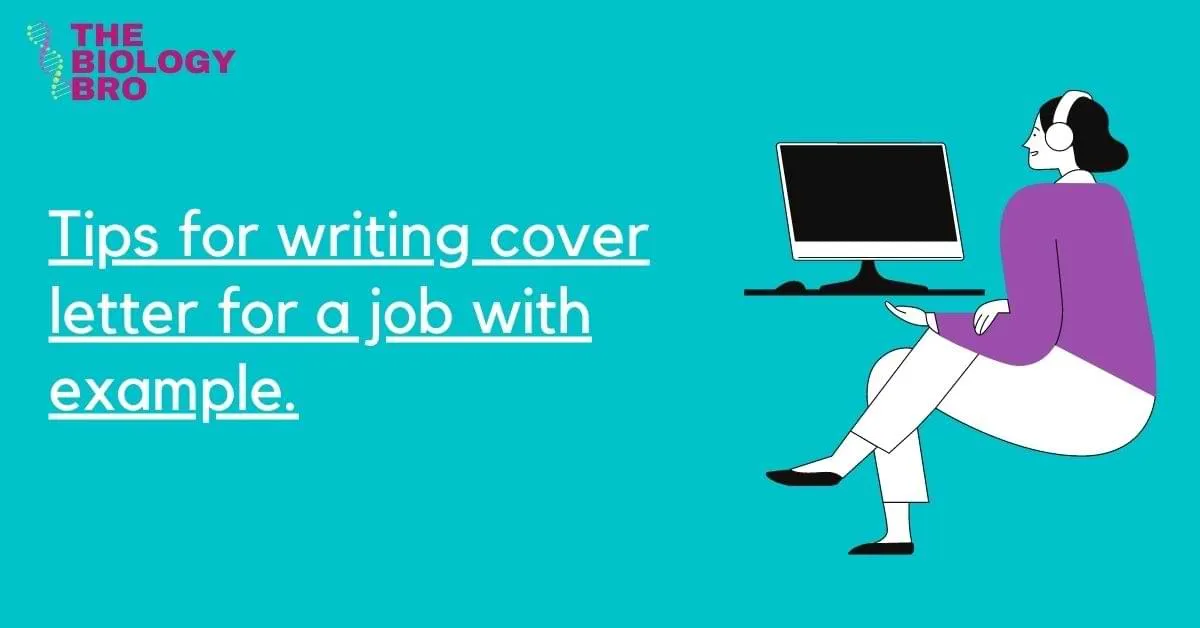
A generic cover letter can be easily spotted and often leads to rejection. Tailoring your cover letter to each job application is one of the most crucial steps you can take. This means researching the company, understanding the specific requirements of the role, and customizing your letter to reflect that understanding. Review the job description carefully and identify the key skills and qualifications the employer is seeking. Then, in your cover letter, demonstrate how your experiences and skills align with those requirements. This shows the hiring manager that you have taken the time to understand their needs and are genuinely interested in the opportunity. Mention specific projects or initiatives at the company that resonate with you, or the reasons why you admire their company culture. This personalized approach helps your application stand out from the generic applications that employers receive daily.
Use Action Verbs to Showcase Achievements
Your cover letter is an opportunity to demonstrate your accomplishments and abilities, and the best way to do this is by using strong action verbs. Action verbs bring your experiences to life and illustrate the impact you’ve made in previous roles. Instead of saying ‘Responsible for project management,’ use action verbs like ‘Led,’ ‘Managed,’ ‘Coordinated,’ or ‘Oversaw.’ These verbs create a dynamic picture of your skills and responsibilities. For each accomplishment you describe, start with a powerful action verb and then clearly state what you did, how you did it, and the results achieved. Quantify your achievements whenever possible. For example, instead of saying ‘Improved customer satisfaction,’ say ‘Increased customer satisfaction scores by 25% within a year through targeted customer service initiatives.’ Using action verbs and quantifiable results not only makes your cover letter more engaging but also provides tangible evidence of your value to the employer.
Proofread and Edit Thoroughly
Before submitting your cover letter, it is essential to proofread and edit it meticulously. Errors in grammar, spelling, and punctuation can create a negative impression and undermine your credibility. These errors demonstrate a lack of attention to detail and may lead to an automatic rejection of your application. Take the time to review your cover letter several times, checking for any errors you might have missed. Read the letter aloud to yourself to identify any awkward phrasing or sentence structures. It is also a good idea to have a trusted friend, family member, or career advisor review your cover letter for you. A fresh pair of eyes can often catch errors that you might have overlooked. Use grammar and spell-checking tools, but don’t rely on them entirely. They are useful, but they don’t always catch all errors, and may not be able to understand the context. A polished, error-free cover letter will demonstrate your professionalism and attention to detail, increasing your chances of getting the job.
Keep it Concise and Focused
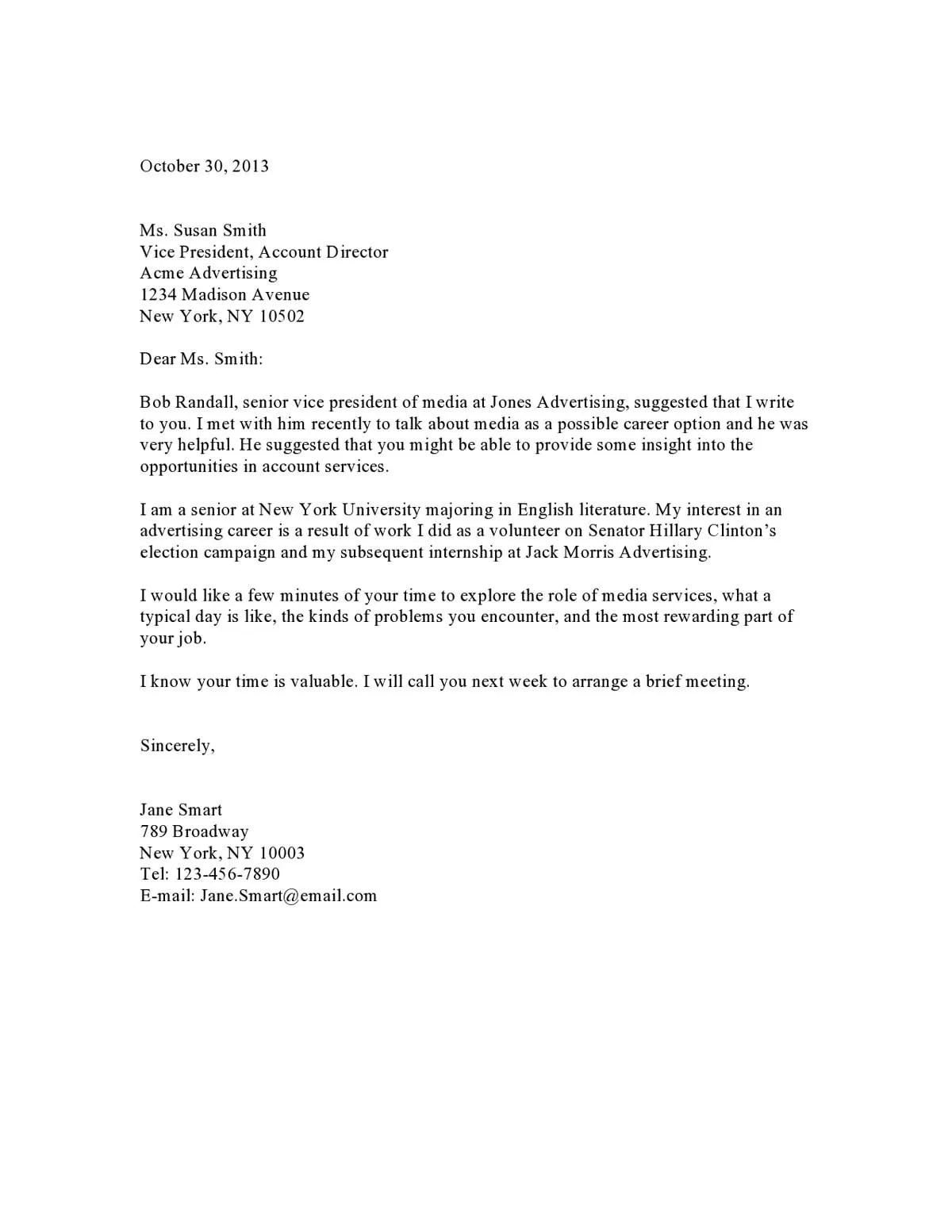
Hiring managers are often very busy, and they don’t have time to read lengthy cover letters. Your cover letter should be concise, focused, and get straight to the point. Aim for a letter that is no more than one page long. Every sentence in your cover letter should serve a purpose. Avoid unnecessary jargon or overly complicated language. Focus on the most relevant skills, experiences, and accomplishments that align with the job requirements. Be sure to use clear, concise language and a professional tone. Start with a strong opening that grabs the reader’s attention. In the body paragraphs, highlight your key qualifications and explain why you are the perfect fit for the job. End with a compelling closing that reiterates your enthusiasm and includes a call to action, like a request for an interview. By keeping your cover letter concise and focused, you increase the likelihood that the hiring manager will read it and be impressed.
Cover Letter Format: Dos and Don’ts
Formatting the Header and Salutation
The format of your header and salutation sets the tone for your cover letter. Your header should include your contact information, such as your name, phone number, email address, and LinkedIn profile URL, if applicable. The header should be aligned consistently and formatted to make it easy for the hiring manager to contact you. Address the hiring manager directly whenever possible. Research the name of the hiring manager, and use it in your salutation. If you can’t find a name, ‘Dear Hiring Manager’ is acceptable, but avoid overly generic greetings. The salutation should be professional and respectful. Using a proper salutation sets a tone of professionalism and attention to detail. If you are unsure of the correct person to address, research the company’s website or LinkedIn to find out the right contact person. Double-check the spelling of the hiring manager’s name to make sure it is correct. This shows you are thorough and genuinely interested in the opportunity, which increases your chances of a positive response.
Structuring the Body Paragraphs Effectively
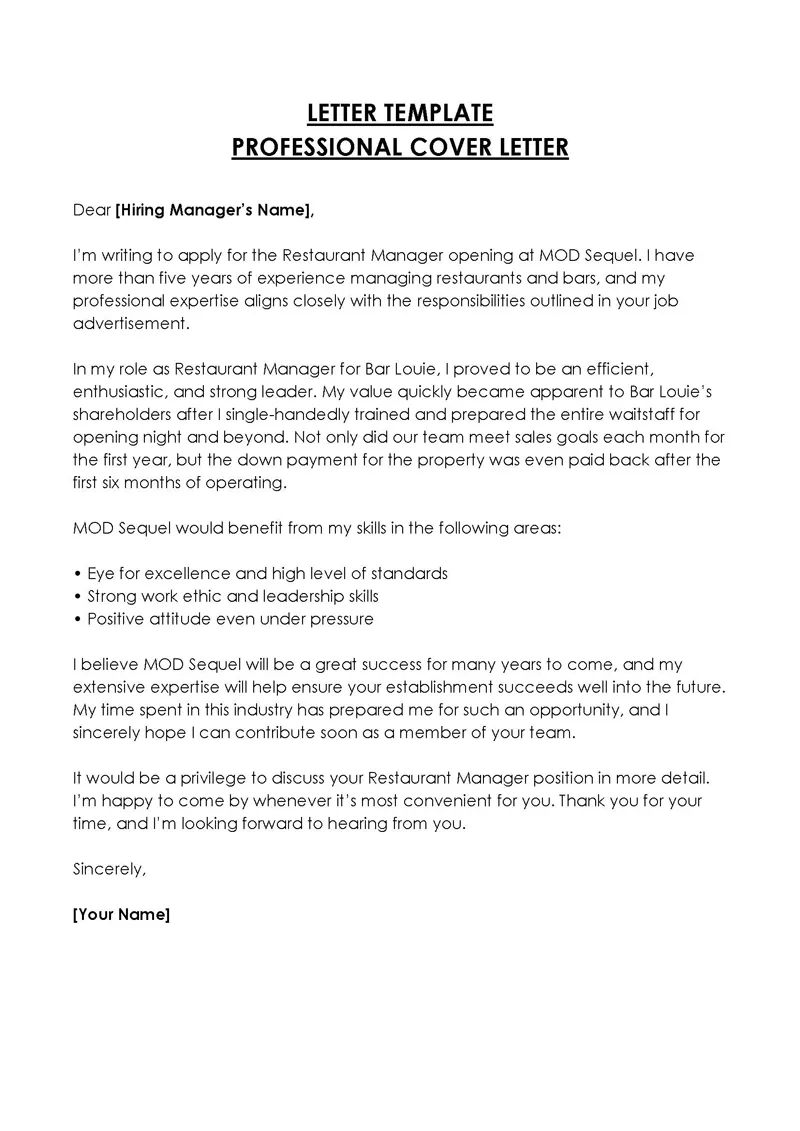
The body of your cover letter is where you showcase your skills, experience, and enthusiasm for the job. Break the body into well-structured paragraphs that address different aspects of the job description. Start with a brief introduction that states the position you are applying for and how you learned about it. The main body of your letter should highlight your most relevant skills and experiences, providing specific examples of your achievements. Support your claims with quantifiable results whenever possible to demonstrate your impact. Structure your letter logically to make it easy for the hiring manager to follow. The body paragraphs should be concise, focused, and well-organized. Use strong action verbs to describe your responsibilities and accomplishments. The body paragraphs should link your skills and experiences to the specific requirements of the job. Conclude your cover letter with a call to action that expresses your interest in the position and a request for an interview. This will make a favorable impression on the hiring manager.
Writing a Compelling Closing
The closing of your cover letter is your final opportunity to make a strong impression. It should reiterate your interest in the position and leave the hiring manager with a positive and memorable impression. Start by summarizing why you are a great fit for the role, highlighting your key skills and experiences. Then, express your enthusiasm for the opportunity and the company. Include a call to action, such as requesting an interview or suggesting a follow-up. Thank the hiring manager for their time and consideration. Maintain a professional and polite tone throughout your closing. End with a professional closing, such as ‘Sincerely’ or ‘Best regards’, followed by your full name. Ensure your contact information is included for easy access. A well-written closing reinforces your qualifications and conveys your genuine interest, making it more likely that the hiring manager will take the next step.
Cover Letter Examples to Inspire You
Example Cover Letter 1 for a Marketing Role
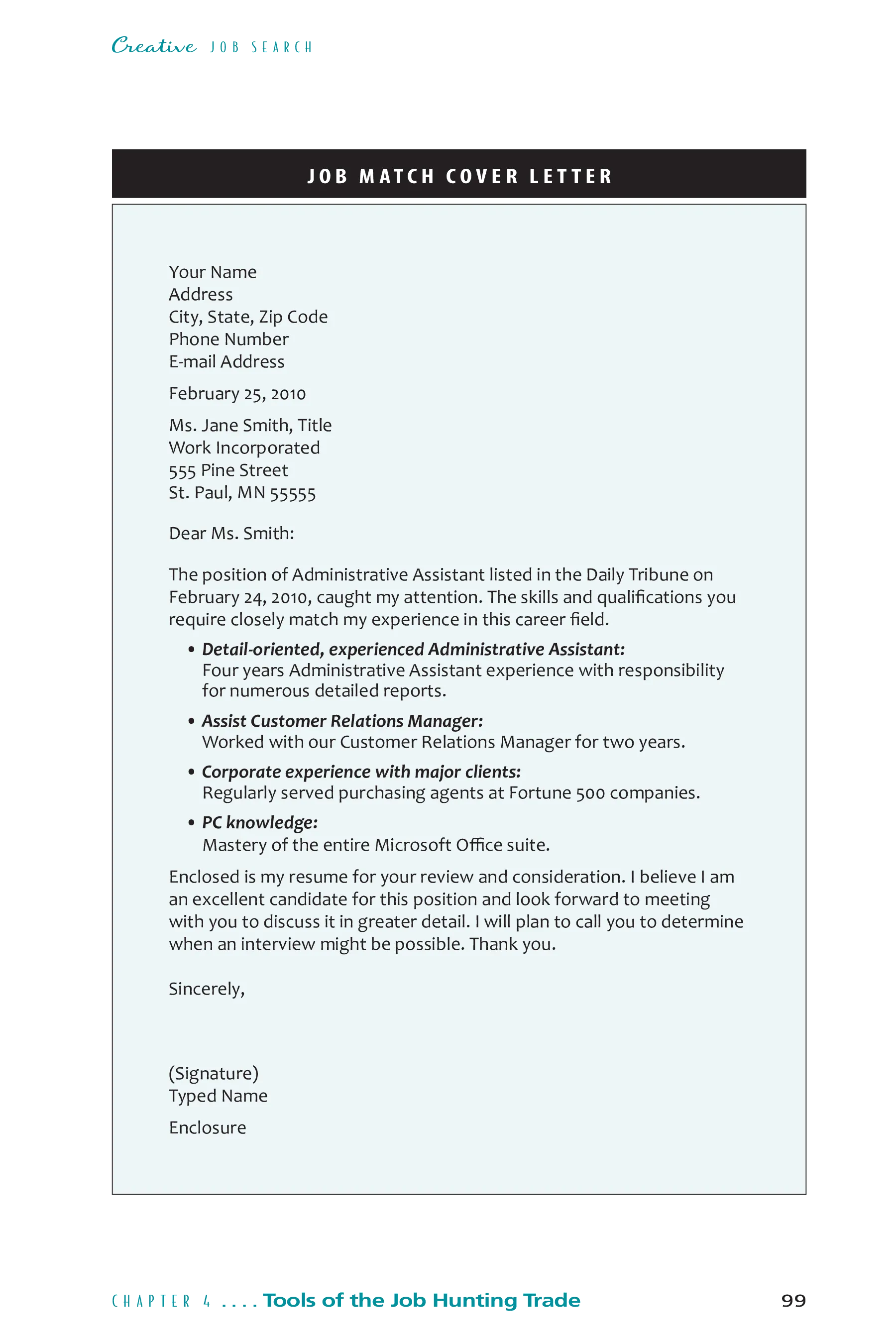
Dear [Hiring Manager Name],
I am writing to express my keen interest in the Marketing Specialist position at [Company Name], as advertised on [Platform]. With five years of experience in developing and executing successful marketing campaigns, I am confident that my skills and experience align perfectly with your requirements.
In my previous role at [Previous Company], I led a team that increased social media engagement by 35% and generated a 20% increase in leads through targeted digital advertising. I am proficient in various marketing tools, including [List tools], and have a proven track record of driving measurable results.
I am particularly drawn to [Company Name]’s innovative approach to [Mention specific company initiatives], and I am eager to contribute my expertise to your team. My goal is to become a vital part of your marketing strategy.
Thank you for your time and consideration. I have attached my resume for your review and welcome the opportunity to discuss my qualifications further in an interview.
Sincerely, [Your Name]
Example Cover Letter 2 for a Software Developer Position
Dear [Hiring Manager Name],
I am writing to apply for the Software Developer position at [Company Name], as advertised on [Platform]. I am a highly skilled software developer with a strong background in [List programming languages and technologies], eager to contribute to your team.
During my time at [Previous Company], I successfully developed and implemented [Specific project or feature], which improved system efficiency by 30%. I am experienced in the full software development lifecycle, from design and implementation to testing and deployment. My expertise includes proficiency in [List key skills] and a demonstrated ability to solve complex technical challenges.
I am excited about [Company Name]’s work in [Specific area], and I am keen to apply my skills to your projects. I look forward to growing as a developer at your company.
Thank you for your time. I am available for an interview and ready to showcase my development skills.
Sincerely, [Your Name]
Example Cover Letter 3 for a Teacher Position
Dear [Hiring Manager Name],
I am writing to apply for the Teacher position at [School Name], as advertised on [Platform]. With a passion for education and a dedication to fostering a positive learning environment, I am eager to contribute to your school community.
I hold a [Degree] in [Field of Study] and have [Number] years of experience teaching [Grade level] students. During my tenure at [Previous School], I implemented [Specific teaching method or program], which resulted in a [Percentage] increase in student test scores. I am skilled in curriculum development, classroom management, and differentiated instruction.
I am drawn to [School Name]’s commitment to [Specific school values], and I am excited to create a supportive and engaging learning environment for your students.
Thank you for considering my application. I am looking forward to discussing my qualifications with you in an interview.
Sincerely, [Your Name]
